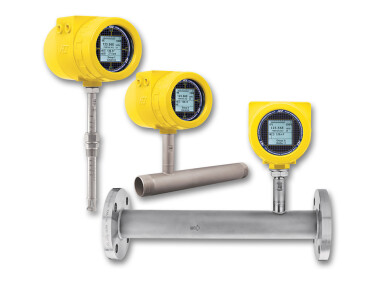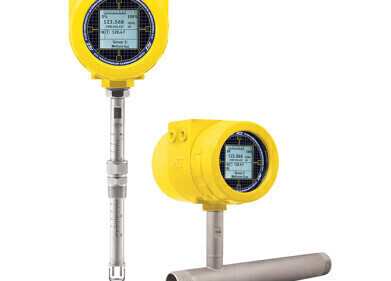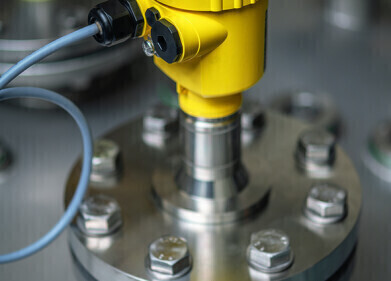Flow level pressure
Level and flow switch supports US fire protection codes for storage and use of combustible liquids
Jun 12 2019
Process and plant engineers will find the FLT93 Switch from Fluid Components International (FCI) provides a ruggedised, ultra-reliable liquid level and flow sensor that detects and switches to help them comply with the US’ National Fire Protection Association (NFPA) Code 30 safety requirements in challenging hazardous environments.
The serious dangers of leaking combustible and flammable liquids are well known, and safety is always the top management priority in process industry and manufacturing plants. The consequences of catastrophic fire accidents due to the lack of proper instrumentation to detect, alarm and shut-off fluid leaks and spills can be devastating in terms of the potential for loss of human life and equipment and/or property damage.
The purpose of NFPA Code 30 is to prevent such accidents by reducing the hazards associated with the storage, handling, and use of flammable and combustible liquids. Code 30 is enforceable under the U.S. Occupational Health & Safety Administration (OSHA), many state and local regulations, as well as similar regulations that exist around the globe.
Within NFPA Code 30 there are 12 sections that identify and stipulate the use of level or flow switches. These 12 sections of the code are identified and discussed with instrumentation recommendations provided in a new FCI application note entitled, “How To Comply with NFPA Code 30 Requirements for Level and Flow Detection”.
These SIL-2 compliant switches have a mean time between failure (MTBF) rating of 190 years and carry global HazEx agency approvals including FM, FMc, ATEX and IECEx for installation and application in potentially dangerous locations.
One of the most common safety switch application is the filling of storage tanks with flammable and combustible fluids. FCI’s FLT93 Flow/Level Switches detect tank over-filling conditions, issue warning alarms and provide control for liquid shut-off or diversion. They also provide alert warnings any time there is a change in a tank’s dry-to-wet condition, including the entry of water into the tank. In fluid dispensing or handling areas, air flow switches monitor ventilation air systems for air flow to ensure their operation and warn of any system failure.
Other switch safety monitoring applications include: gas purging of gas recovery auxiliary heating systems, detecting the low flow of heat transfer fluid in heat exchanger tubes, low fluid levels in expansion tanks and vaporizers, low level alarms liquid knock-out pumps and low fluid flow in emergency sprinkler systems.
FCI’s advanced line of thermal level switches and interface switches detect, monitor and alarm on point levels of all liquids. These level switches are designed for accurate, highly repeatable trip-point sensitivity in water, oils, chemicals in industrial plants and processes. Level switch output selections include DPDT relays or hermetically sealed relays, open collector and 4-20 mA. Depending on the model, alarms/trip points are field-configurable for flow, temperature, high or low hysteresis, time delay, and more.
For level and interface service, their accuracy is ± 0.25 inch (± 6.4 mm) with repeatability of ± 0.125 inch (± 3.2 mm). Response time is as low as 3 seconds, making them ideal for level monitoring and safety applications. They are available with insertion lengths from 1.2 inches (30 mm) to 18 inches (457 mm), with custom lengths available.
For flow service, they offer a wide set point range in air/gas of 0.25 to 120 sfps (0.08 to 37 smps) at standard conditions of 70° F (21.1° C) and 14.7 psia (1.013 bar[g]). In hydrocarbon-based liquids, the set point range is 0.01 to 5.0 fps (0.003 to 1.5 mps), and in water-based liquids the set point range is 0.01 to 3.0 fps (0.003 to 0.9 mps). Accuracy in gases is ± 0.5% reading or ± 2 sfps (± 0.06 nmps) and in liquids is ± 0.5% reading or ± 0.04 fps (± 0.012 mps) [whichever reading is higher].
Digital Edition
PIN 25.5 Oct/Nov 2024
November 2024
Analytical Instrumentation - Picturing Viscosity – How Can a Viscometer or a Rheometer Benefit You? - Sustainable Grease Formulations: Evaluating Key Performance Parameters and Testing Method...
View all digital editions
Events
Jan 20 2025 San Diego, CA, USA
Jan 22 2025 Tokyo, Japan
Jan 25 2025 San Diego, CA, USA
SPE Hydraulic Fracturing Technology Conference and Exhibition
Feb 04 2025 The Woodlands, TX, USA
Feb 05 2025 Guangzhou, China





















